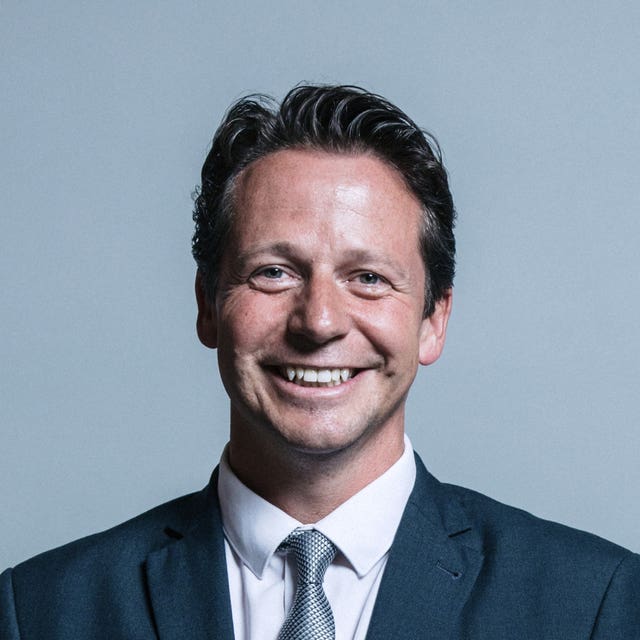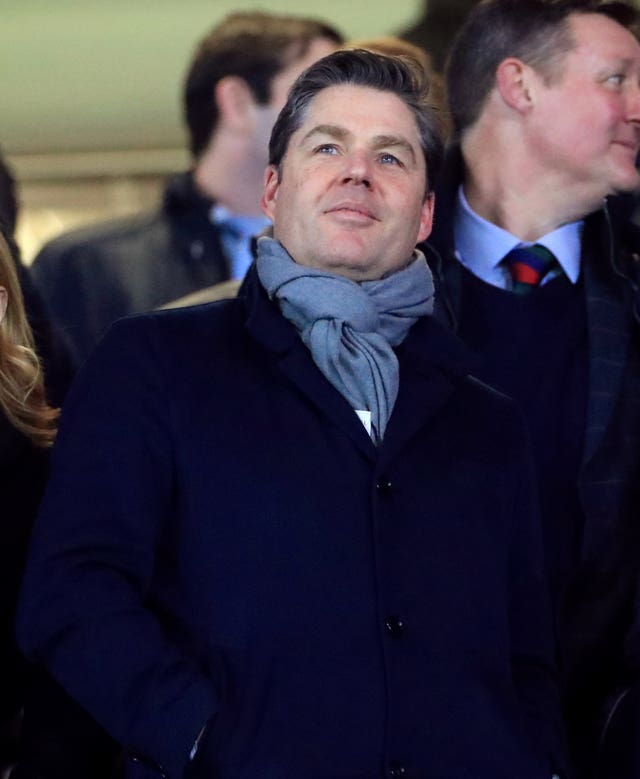The Government has missed an opportunity to close the gap between the Premier League and the rest of football in giving its approval in principle to a new top-flight television deal, the EFL has said.
The Premier League announced on Thursday morning it had renewed its existing domestic broadcast contracts with Sky Sports, BT Sport, Amazon Prime Video and BBC Sport for a further three years to 2025, a move described as the best outcome "for the Premier League and the whole game" by the top flight's chief executive Richard Masters.
The private nature of the sale, instead of holding the normal open tender process, required the Government to agree in principle to an exclusion order under the Competition Act. The Government says it is "minded to" approve such an order but will consider representations from interested parties before making its final decision, and it is understood the EFL could raise a challenge to it.
EFL Statement: Premier League broadcast extension. #EFL https://t.co/0jm7zSg99W
— EFL Communications (@EFL_Comms) May 13, 2021
The Premier League has committed an extra £100million to the football pyramid over the next four years as part of the planned renewal, in addition to maintaining its £1.5billion contribution to the wider game over the next three-year cycle.
However, the EFL believes the Government should have driven a harder bargain and forced a wholesale rethink of how television revenue is split.
"While we recognise the attempts by the Government to increase the level of solidarity provided to League One and Two clubs through this process, what is more urgently required is a fundamental reset of the game's financial model – both in terms of fairer distribution of monies at all levels and sensible, realistic cost control measures to ensure clubs will live within their means," a league statement read.
"Today's announcement appears to have been a missed opportunity for the Government to obtain a commitment from the Premier League to address the financial imbalance that exists between the top division and the rest of football and comes just a matter of weeks since football and authorities unified with a collective voice to protect the integrity of the top division and wider pyramid in this country."

The EFL said it hopes the issue of revenue distribution will be tackled in either the Premier League's ongoing strategic review, the Government's fan-led review, or both.
It again called for the abolition of parachute payments which it described as "outdated" and for the EFL to receive 25 per cent of net pooled media revenues from English football, an idea first floated in the controversial Project Big Picture proposals which emerged last October.
The Premier League sees its contributions to the wider game as "world-leading" and highlighted that £450m will go to EFL clubs over the next rights cycle, excluding parachute payments.
Politicians agreed with the Premier League that there were "exceptional and compelling reasons" to back the renewal, which is worth around £5bn in total and will provide funding crucial to the health of the game in England considering the crippling losses caused by the coronavirus pandemic.
Premier League clubs have unanimously agreed a proposal to conclude a three-year renewal of the League's UK live and non-live broadcast agreements with Sky Sports, BT Sport, Amazon Prime Video and BBC Sport
Full statement: https://t.co/klVe8BTTQt pic.twitter.com/MCUU2ESRu7
— Premier League Communications (@PLComms) May 13, 2021
The Premier League risked a drop in the value of its rights in an open tender, and Masters said: "We've looked at this from every conceivable angle and come to the conclusion this is best for the Premier League and best for the whole game."
The value of the most recent rights deals for some of the Premier League's rivals such as the Bundesliga and Serie A have declined, but the Premier League has managed to buck the trend so far.
As well as maintaining the value of its domestic deal through this renewal, the English top flight has matched or improved upon the overseas deals it has struck for the next cycle to date, including in the Nordic countries and its deal with beIN SPORTS for the Middle East and North Africa.
Premier League extends partnership with @beINSPORTS as the #PL's official broadcast partner in the Middle East and North Africa until 2025
More: https://t.co/TWsoFJ4fdJ pic.twitter.com/gbwGgSM7Z6
— Premier League Communications (@PLComms) December 17, 2020
Masters said the rest of the Premier League's new overseas rights deals would be done between now and February next year.
He said the renewal of the domestic deal ruled out the prospect of clubs being able to stream live matches on their own platforms to a domestic audience in the 2022-25 cycle, and said the intention was to return to the 'normal' 200 live matches and the Saturday 3pm blackout next season, pandemic permitting.
He reiterated his hope that the new campaign will begin in August with full-capacity crowds.
"I feel really optimistic that we will be full on August 14. All the mood music and messages coming out of Government are positive. Maybe the fan experience will be slightly different but I'm optimistic," he said.
Masters reflected on what had been a "crazy" campaign, and admitted there had been a danger at one stage of the coronavirus pandemic forcing the season to stop.
"The only time I felt the season was in danger was around that Christmas period when we were making postponements," he said.

"The new variant came in across the country and it impacted on our numbers. At that point I did fear that we might have to have a break."
The split of games is unchanged between the broadcasters, with one small change being BT's announcement that it will move its Saturday 12.30pm kick-offs to Saturday 7.45pm if one or both of the teams involved has to play in the Champions League on the Wednesday before.
The move followed complaints about player fatigue during the campaign from managers such as Manchester United's Ole Gunnar Solskjaer and Liverpool's Jurgen Klopp.
/https%3A%2F%2Fsportsmole-media-prod.s3.gra.io.cloud.ovh.net%2F20%2F46%2Frichard-masters.jpg)
/https%3A%2F%2Fsportsmole-media-prod.s3.gra.io.cloud.ovh.net%2Fuploads%2F2025%2F08%2Fkelleher-6897b05bc138f515736162.jpg)
/https%3A%2F%2Fsportsmole-media-prod.s3.gra.io.cloud.ovh.net%2Fuploads%2F2026%2F02%2Fevanilson-3-69a338ce4bf4f247223515.jpg)
/https%3A%2F%2Fsportsmole-media-prod.s3.gra.io.cloud.ovh.net%2Fuploads%2F2026%2F03%2Farne-slot-mo-salah-correspondent-email-sportmole-2026-03-02t005441-069-69a4dfe9939c8309288781.jpg)
/https%3A%2F%2Fsportsmole-media-prod.s3.gra.io.cloud.ovh.net%2Fuploads%2F2026%2F03%2Farne-slot-mo-salah-correspondent-email-sportmole-2026-03-02t000124-873-69a4d4a7bf3e2714976889.jpg)